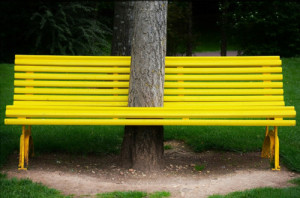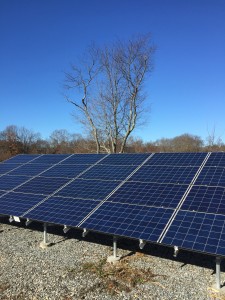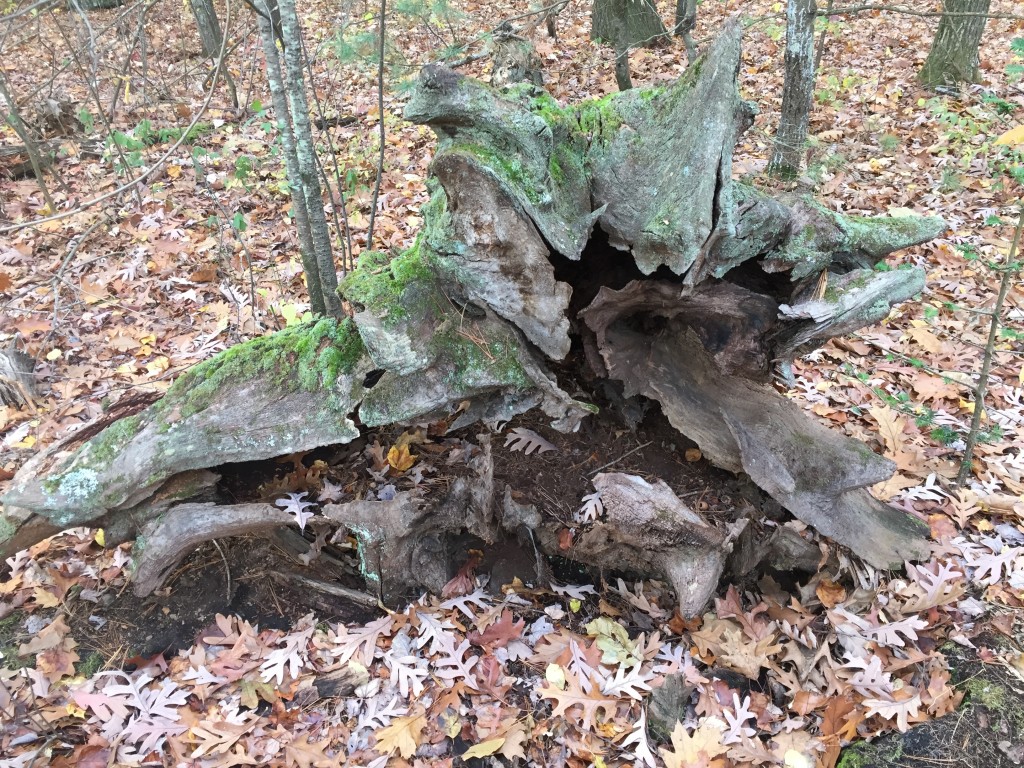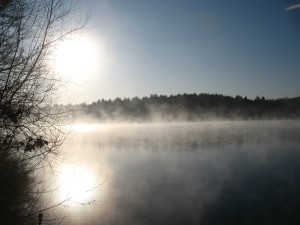How often do I (or you) sit, simply, in the sun for an hour and not stir or strike out suddenly on foot or in thought for elsewhere? Um…(sorting experience takes a while)…never, or almost.
But, with a few hours unclaimed, I’ve come out to this place, where for his early months, Henry Thoreau gathered himself after the exhaustion of birth, and I’ve found no one; only the glossy new solar panels attend at this moment, and, on this short-lived but fully-sunned Saturday, they are busy.
But, by the kitchen garden, there is a yellow bench. And it is not busy; we are both free. Always obedient to natural instruction, I go to the yellow bench by the house-garden, and, under the whine of rising planes, begin to bask.
As I sit here, the sun catches in the left-side folds of my clothing, warming me like old summer; the shady right side cools to the November present.
The slightest breeze drops a few front yard maple leaves; the drying lilacs rattle faintly. And, from the lamppost, gossamer threads that might have become webs glisten silver. My sun-side’s now close to hot; my temperate right side wonders about turning us around. But the bench faces one way, and we will have to adjust.
A Hanscom jet streaks skyward, making the sound of rent air; it’s followed by a tentative prop-plane, wobbling up with the one-lung pops of its little engine. I wonder idly if the nearby garden fence, a rustic two-foot tall construction can keep out a motivated rabbit, or even a fit groundhog. But it must, or perhaps the rodents are drawn by the adjacent farm, maybe they too work at Gaining Ground.
Now a hawk keens, and I begin to search the thermals that must be rising from this open day. Another jet, this one keening too, and in the after-silence, the hawk again. But the hawk’s not up high in the jet-sky, she’s hunting the field’s fringe, watching for gleaners from an empty oak; maybe the keening is message to mate – Over here, they’re all over here.
How small this tiny spider must be to have landed on my knee, trailing still the gossamer strand that is his parachute, not, as supposed before, first strand of web. He is, I decide, a Zephyr-spider, designed to ride the mildest breeze. And these shining strands are everywhere on this day, thousands of little riders; the seemingly empty air is full of spider-migration.
It’s been 60 minutes, and we’ve all collected some charge. My left side is summer warm, my right autumn cool, even as the sun slides southwest, rounding me a few degrees, searching out the other side. As I stir my two-season self toward the rest of the day, more spiders float by. I’m sure that, as I turn toward my car and the panels, a few are hitching a ride on me.
The stoic panels keep watching the sun; the yellow bench is open, yours whenever you get here.




